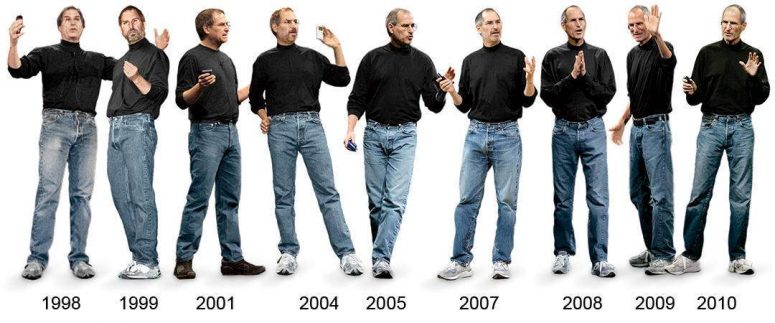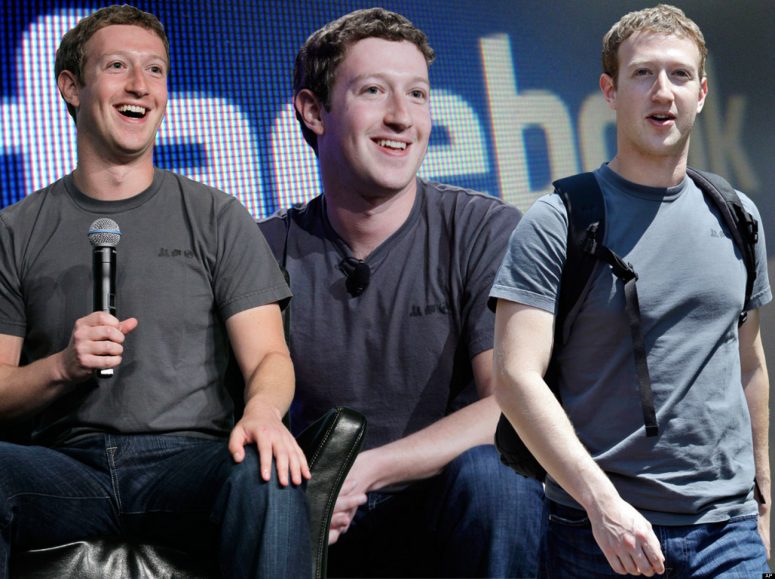Listen up, futurists: Here’s why wearing the same outfit everyday is a bad idea

I admire Steve Jobs and Mark Zuckerberg. Both are big thinkers and deserve to be imitated by any who hope to follow their success.
But unless you’re already a celebrity (or otherwise top 10) executive, you probably shouldn’t follow their tacky example of wearing the same casual uniform everyday. Here’s why:
- Superstar executives don’t need to sell themselves any more. They’ve already arrived, so people will listen and respect them, regardless of what they wear. If you command similar respect, by all means, keep wearing a hybrid tunic. Otherwise, use your visual “book cover” as an easy and immediate way to influence the people you come in contact with.
- Appearances matter for 99% of people. People will judge you based on your appearance. So if you want to be judged in the most favorable way, err on the formal or at least interesting side. “When the old lady in the street sees you wearing a sweater with the hood up, she isn’t thinking the same thing as when she sees you wearing a nice shirt and some chinos,” observes Sam Montgomery. So unless you want to stand out for the wrong reasons, consider semi-formal dress everyday.
- Uniforms don’t distinguish you. If you hope to make an impression on the world, you’ll need to impress as many people as possible. You cannot do this if you look, act, or think in a homogenous way. I admit I spend several minutes thinking about what I’m going to wear somedays. But I consider those minutes very well spent, as I’ve been complimented and appreciated often for a cool pair of sneakers, loud colored watch, or bold-style shirt I wear.
- Formal attire may increase productivity. I say “may” because the research isn’t clear on this. But t’s scientifically proven that the nicer someone is dressed, the better they feel about themselves. The better one feels about themselves, the more confident they are. The more confident they are, the more productive and effective they can be when overcoming professional challenges. For this reason, I often wear a button down shirt or nice sweater to work on days where I know a lot is expected of me, even when I know I won’t be seeing someone I’d like to impress. In other words, I’ll take all the help I can get.
Admittedly, I like active-wear and comfortable clothes as much as the next person. But not at the risk of making or reaffirming a favorable impression. Better yet, lots of formal attire (including my navy suit) now includes stretch, moisture-wicking, and forgiving fabrics.
Whatever you decide, it’s worth investing a few minutes into how you look. Even if you opt for a colorless, casual shirt and blue jeans (like the below), I’d at least recommend some flashy shoes, watch, or other accessory that says, “I dress differently because I think differently.”

